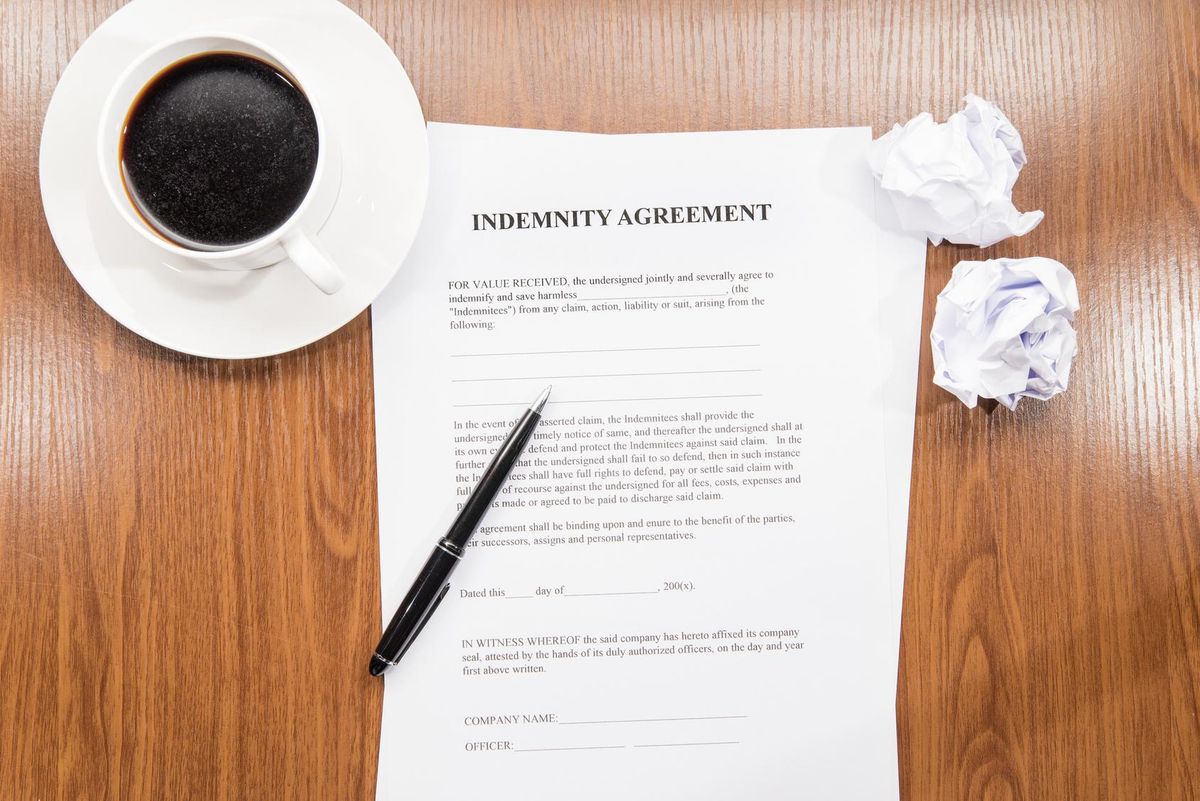
Understanding Indemnity Agreements and How They Can Protect Your Business
By Tina Gehres
Contract law allows business owners various mechanisms to mitigate the risk of a potentially crippling lawsuit in the case of an accident or loss. The indemnity agreement is one of the most common contracts used to provide this type of protection.
While many contractual terms are somewhat self-explanatory, “indemnity” is a word you might not be familiar with. With expertise pulled from experienced business attorneys in San Diego, this article will explain what indemnity means, how an indemnity agreement works, and why indemnity is so important to establish contractually.
Defining "indemnity"
Indemnity is generally defined as protection against a loss. While indemnity is somewhat synonymous with reimbursement, the Latin root indemnis, which means to eliminate damage or harm, explains the legal interpretation of indemnity as “to hold harmless.”
If you indemnify someone, you are absolving them from responsibility or liability—and perhaps also reimbursing them—for damage, loss, or financial burden.
Purpose of an indemnity agreement
Businesses use indemnity agreements to reduce their liability for unforeseen damages or losses that might take place during a transaction or engagement. Without an indemnity agreement, the business can be subject to legal claims, suits, actions, and judgments arising from a mishap or misfortune. Indemnity is often written as a clause, although it can also serve as a standalone contract.
Indemnity agreement terminology
In an indemnity agreement, the indemnitee is the party being protected, and the indemnifier is the party agreeing to minimize harm or “hold harmless.” An indemnity agreement might also be called a hold harmless agreement, waiver of liability, or release of liability. The language within the agreement can vary depending on the state, industry, and terms.
Note that the terms can get rather complex, because they describe the conditions under which the indemnitee will be held harmless, as well as the exclusions.
Other Articles From AllBusiness.com:
- The Complete 35-Step Guide for Entrepreneurs Starting a Business
- 25 Frequently Asked Questions on Starting a Business
- 50 Questions Angel Investors Will Ask Entrepreneurs
- 17 Key Lessons for Entrepreneurs Starting A Business
Business-to-business use cases
Indemnity agreements are frequently used in construction, in which a contractor might ask subcontractors to sign an agreement in case they are injured on the job. A broad form indemnity, or “no-fault,” agreement places liability for any losses solely on the subcontractor. A limited indemnity agreement holds the subcontractor responsible for damages resulting from their own negligence or other conduct as defined in the agreement. As a rule of thumb, subcontracting any service should involve an indemnity agreement for the contractor.
Employee use cases
Workplace injuries are typically covered by workers’ comp, which is not waivable by employees. For this reason, indemnity provisions are rarely included in an employment agreement. However, a severance agreement in which an employee is receiving a sum of money in return for a release of all claims, known and unknown, might include an indemnity clause.
Business-to-consumer use case
If you have ever been skiing, skydiving, parasailing, or participated in any other activity involving a third party and a risk of injury—amusement park rides included—you have probably signed an indemnity agreement. Businesses offering potentially dangerous activities use indemnity agreements to mitigate the financial burden if an accident were to occur under their watch and/or on their property. Rental car companies rely on indemnity agreements, as well, to protect against lawsuits stemming from auto accidents involving their vehicles and customers.
Word of advice
Composing an indemnity agreement isn’t as simple as excusing yourself from liability. There are many factors to consider, and many terms that must be carefully worded. You also need to ensure sure your agreement is reasonable, ethical, and enforceable (for example, broad form indemnity has been outlawed in many states). Be sure to seek the advice of a business attorney who understands both the language of contract law and the importance of protecting your business.
RELATED: 9 Legal Missteps That Can Sink Your New Business
About the Author
Post by: Tina Gehres
Tina K. Gehres is the President and founder of Gehres Law Group, P.C., which she formed to provide affordable legal services to small businesses and individuals in the state of California. With more than two and a half decades of legal and business experience, Tina has held a broad range of roles including Corporate Counsel, Director of Human Resources, Law Firm Partner, Legal Consultant, and Senior Accountant. Today, she has positioned herself as a valuable asset to clients as a small business attorney in San Diego and surrounding areas.
Company: Gehres Law Group, P.C.
Website: www.gehreslaw.com



